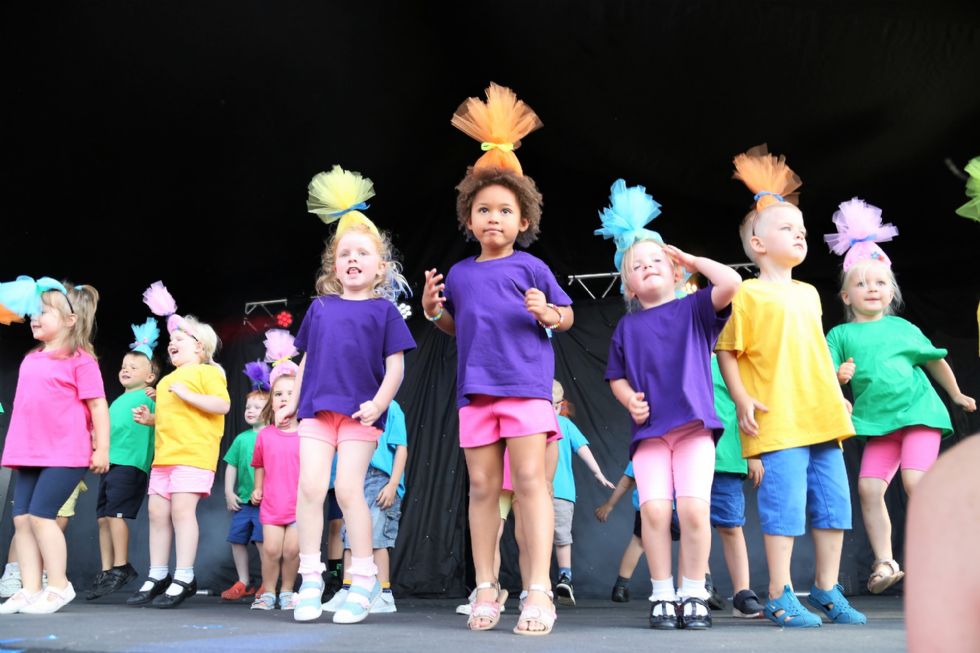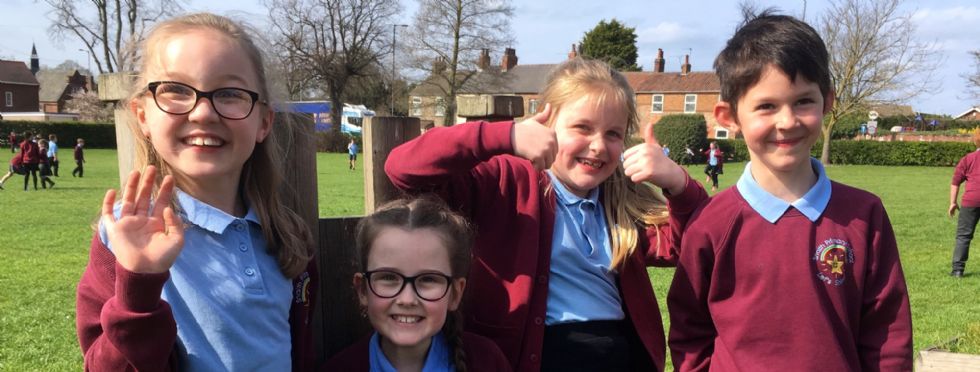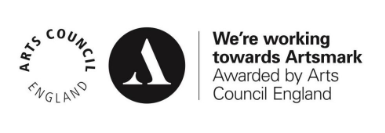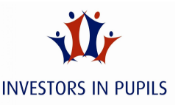Interventions
At Snaith Primary School we use a range of interventions to accelerate progress and ensure all children are fully supported in their learning, social and emotional development. Before children begin an intervention a baseline assessment is completed and the progress of children is monitored throughout the intervention to ensure the maximum impact is achieved. Children's views are also gathered at the beginning and end of interventions to monitor the impact achieved on confidence and attitude towards the target subject. Interventions are selected based on individual needs. In addition to programmes set by external professionals such as physiotherapy or speech and language therapy, same day and personalised interventions to embed learning from lessons may be used. Other interventions used may include:
Social, Emotional, Mental Health
- Time to Talk
- Friendship Group
- Friendship formula
- Socially Speaking
- Jigsaw
- PNS SEAL 'Silver Book'
- Circle of Friends
- ELSA
- Access to Youth Mental Health first aider
- Lego Therapy
- Tackling Anxiety programme.
- Nurture Group
- Starving the Anxiety Gremlin
- Starving the Anger Gremlin
- Social stories/Comic Strip conversations.
Handwriting
Teodoerescu - 'Write from the start’
The ability to produce fluent, legible handwriting with ease is something that affects attainment in most areas of the curriculum, yet many children continue to struggle with this vital skill. This programme offers an approach based on holistic principles to develop the muscles in the hand so that children gain the necessary control to produce letter forms. Alongside this they develop the perceptual skills required to orientate and organise letters and words.
Start Write, Stay Write
Start Write Stay Right is a complete handwriting approach for children which works on the basis that firm foundations need to be established and good basic skills need to be in place before a child can work on functional and fluent handwriting. The programme works on developing core stability, shoulder strength, basic fine motor skills and early pencil skills (for colouring and other non literacy activities) before the child is able to fully engage in the very complex skills of handwriting.
Speed up
In just eight weekly sessions, Speed Up! provides a multi-sensory course of help for any child aged 8-13 whose handwriting is illegible, slow or lacking in fluency. Developed by a leading paediatric occupational therapist and designed specifically for older children struggling with handwriting, Speed Up! gets to the root of writing difficulties by developing kinaesthetic awareness through multi-sensory activity and exercise.
Reading and Writing
Fresh start
Read Write Inc. Fresh Start is a phonics intervention especially designed for struggling readers at Key Stage 2. It follows on from the Read, Write, Inc. phonics programme used throughout Key Stage 1 providing consistency and opportunity for consolidation where necessary. This programme aims to get children reading and writing fluently in 33 lessons. It engages older children with age-appropriate comic strips, quizzes, amusing stories and edgy non-fiction texts. The use of simple and effective spelling strategies also increases confidence when writing.
Literacy Gold
Literacy Gold addresses difficulties that create challenges in reading using fun games. Engaging Eyes, exercises the eye muscles, helping them work together and reduces eye movements. Fluency Builder develops auditory skills so they can hear the sounds in words. Once children can both see the letters and sound out the words, reading improves dramatically. Spelling Tutor focusses on learning the most common 1,000 words. This innovative program utilises the power of linking spelling and handwriting. Pupils write sentences from dictation and then mark their own work, which further reinforces the correct spelling.
Active Literacy Program
Active Literacy is designed to support children who experience literacy difficulties, whether dyslexic or not. It offers a series of exercises which build the foundation skills needed for automatic, fluent and accurate reading and spelling.
Beat Dyslexia
This multi-sensory literacy programme for all pupils struggling to acquire literacy skills, especially (but not only) those with dyslexia. It takes pupils from the earliest stages of letter recognition through to full literacy. Through a varied and imaginative approach it engages and motivates . All goals are small and attainable, perfect for those with short concentration spans and ensuring that all pupils develop a sound understanding of spelling and grammar and gain confidence through their success.
Precision teaching
Precision teaching is a tool for providing regular practice to aid the retention of skills and knowledge after the initial teaching. We use precision teaching to provide regular practice which builds evidence of progress. This may be used to give focussed practice of spellings, reading sight vocabulary or Maths recall skills.
Write Away Together
Write Away Together is based on a dialogue between a child and adult about a piece of independent writing. The aim of the dialogue is to help the child understand how they can improve their work at text, sentence and word level and to embed strategies that will improve children's independent writing. The model Praise, Improve, Plan underpins Write Away Together. Each session is based on a piece of writing done in the class, which is then celebrated and improved. The writer is then prepared to continue the writing independently, where appropriate.
Read, Write, Inc. Phonics (RWI)
Read Write Inc. Phonics teaches children to read accurately and fluently with good comprehension. They learn to form each letter, spell correctly, and compose their ideas step-by-step. Foundation Stage and Year 1 pupils access Read, Write, Inc. phonic sessions daily. In addition to this further sessions may be offered to pupils struggling to make progress or beyond year 1 where necessary.
1 to 1 RWI tutoring
1 to 1 RWI Tutoring is designed to be delivered on a 1 to 1 basis to children who are in danger of falling behind with their reading, are behind their peers, or new to a school and need to catch up. It allows personalised delivery to accelerate learning.
Maths
Numicon
Based on a concrete-pictorial-abstract approach, Numicon encourages children to explore maths using structured imagery and apparatus in order to understand and explain mathematical concepts. Numicon interventions may be carried out on a 1 to 1 basis or in small groups. Many children use Numicon resources to support learning during daily Maths lessons.
Precision teaching
Precision teaching is a tool for providing regular practice to aid the retention of skills and knowledge after the initial teaching. We use precision teaching to provide regular practice which builds evidence of progress. This may be used to give focussed practice of number bonds, times tables, addition and subtraction facts.
Maths Whizz
This online tutoring begins by diagnosing each student’s knowledge gaps across several topics, and then automatically develops a unique learning journey to address those gaps. Through engaging lessons and continuous assessment, the tutor tracks students’ progress, maintaining an up-to-date understanding of their needs and providing the appropriate support at all times. Staff utilise resources linked to this to support specific area's of difficulty and track progress carefully.
Sensory and Physical
Sensory Circuits
Sensory Circuits is a short and snappy sensory motor skills programme that helps to set children up for a school day. It enables children to reach the level of alertness needed to concentrate during lessons. Children participate in a 10-15 minute session of activities designed to improve brain processing efficiency. We find that for many children who crave sensory input these sessions help children to feel calm and relaxed as well as improving their focus.
Fit to Learn
This motor programme is designed for use with primary age children with noticeable difficulties with gross and/or fine motor skills.. Each of the 10 sections has activities which progress in difficulty. The programme is applicable to all children from 3 to 11 years.
Dough Disco
Dough Disco exercises the fingers and hands. It is good before long writing tasks as a warm-up but also builds strength to improve fine muscle control.
Finger Gym
Finger Gym is a comprehensive programme of developmental games, stories, rhymes and activities to improve fine motor skills, language and handwriting. It helps to develop strong, flexible fingers, hands and arms. It promotes better hand-eye co-ordinations, differentiated movement and manual dexterity.
Sensory Spaces/Resources
Our rainbow room and star suite provide spaces for re-set time, decompression and re-regulation. Children can access a variety of sensory resources in these spaces.








